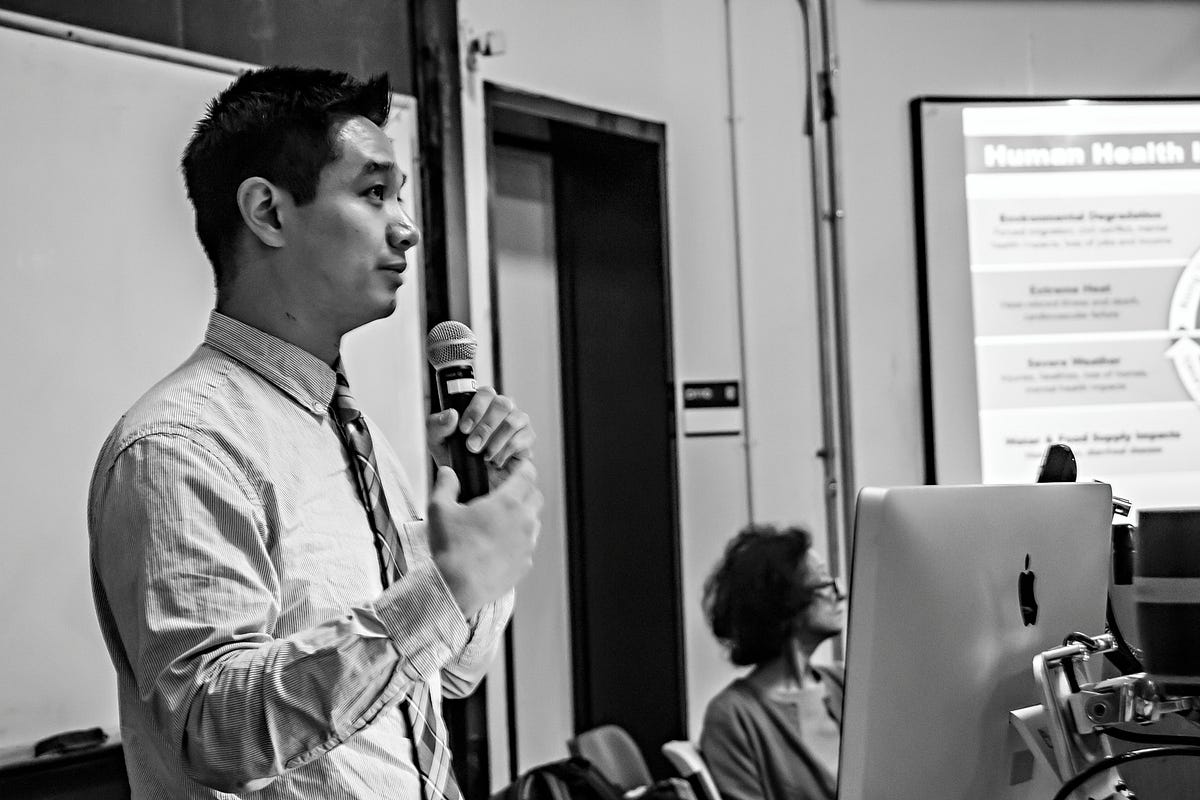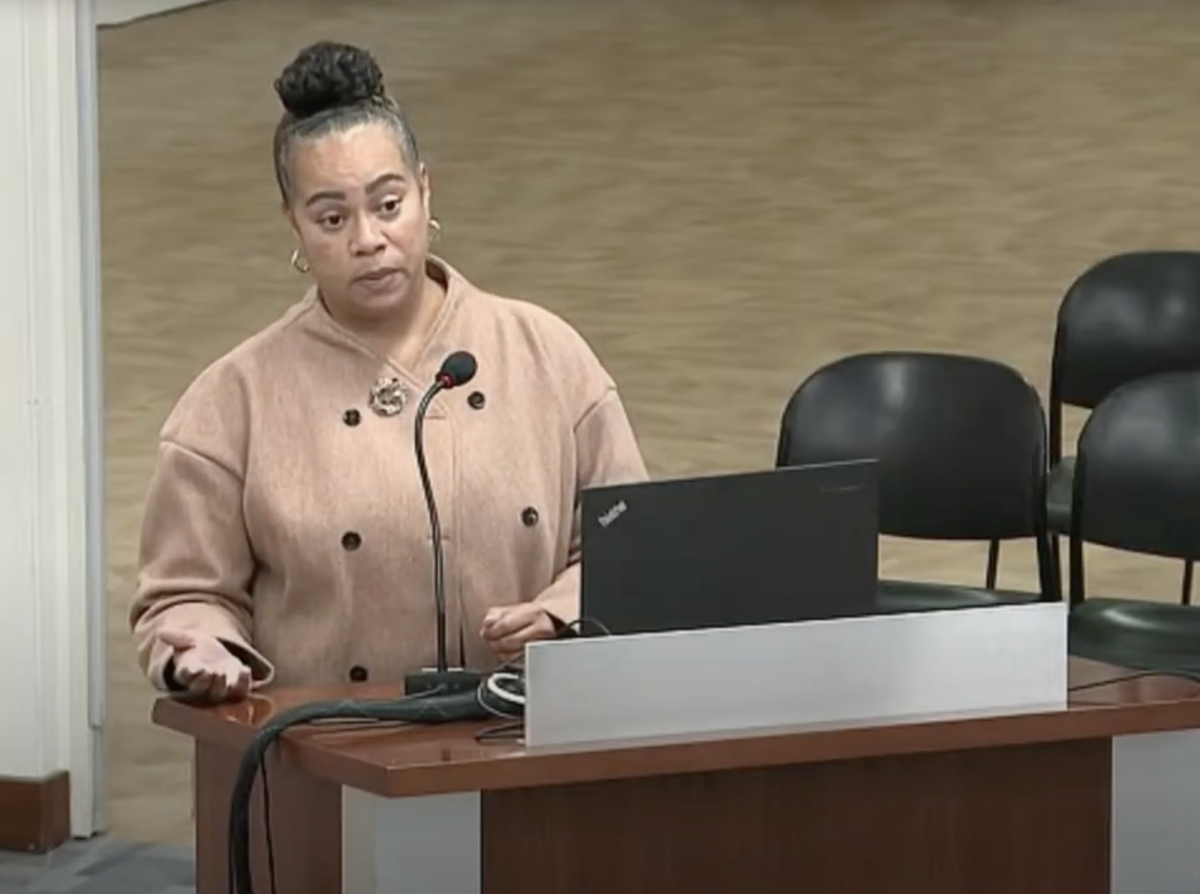
Can you battle climate change and earn a living doing so?
“We’re all going to be affected by climate change, but some of us will be more affected than others,” said Daniel Woo.
He’s a health program and public policy specialist at California’s Department of Public Health.
Woo joined several speakers March 13 for a “Climate Summit”….in Laney’s room D 200.
The speakers, including some Laney alumni, detailed their involvement in environmental protections action through their work, and shared grave warnings of California’s future if action against climate change isn’t taken immediately.
Woo’s job is to study the impacts climate change has on human health, especially poor populations in California.
The poor, Woo said, will be the most affected by climate change.
Many of the California’s poor residents don’t have walking-distance access to grocery stores, parks, or work places, Woo said, and giving these people those options is an essential goal for the state.
“It’s not about trying to tell people what to do, but giving them the choice [to do it],” he said, stressing that the department’s goal is to give people opportunities to live more environmentally sound lives rather than force them to do so.
Chanell Fletcher, director of California eco-conscious community planning group, ClimatePlan, said that, growing up, she “didn’t even know what ‘walk-able’ meant.”
“Everybody deserves to have a community where they can safely walk [or] safely bike,”
Fletcher was raised in south Sacramento and her family drove everywhere because their neighborhood lacked necessities such as grocery stores and parks, and it was often unsafe to walk around her neighborhood.
Her job is to redesign these underprivileged neighborhoods to include parks, grocery stores, and employment hubs within walking distance.
“Everybody deserves to have a community where they can safely walk [or] safely bike,” she said.
Fletcher, a San Francisco State University alum, wrote California State Legislature bills AB 179 and SB 150.
Both bills support more environmentally friendly transportation regulations designed to reduce emissions and encourage commuters to use public transportation.
Bill SB 150 also requires that the council that oversees its enforcement has a “diverse membership” and experience working with disadvantaged communities.
The key to progressive climate action, most speakers stressed, was for the next generation to continue the cause.
“There are a lot of entry points for [students] to get involved,” Woo said.
Senior Planning Advisor at the Governor’s Office of Planning and Research and Laney alum Sahar Shirazi encouraged students to investigate the “Civic Spark” competition and internships and fellowships with state environmental programs.
Fletcher suggested that students who wanted to get involved could enroll in urban planning programs at state and UC schools when they transfer.
Disparity and a lack of information throughout the state are holding back California in the battle against climate change, she said, and all California residents need to ask themselves:
“What are we doing to change that?”

























